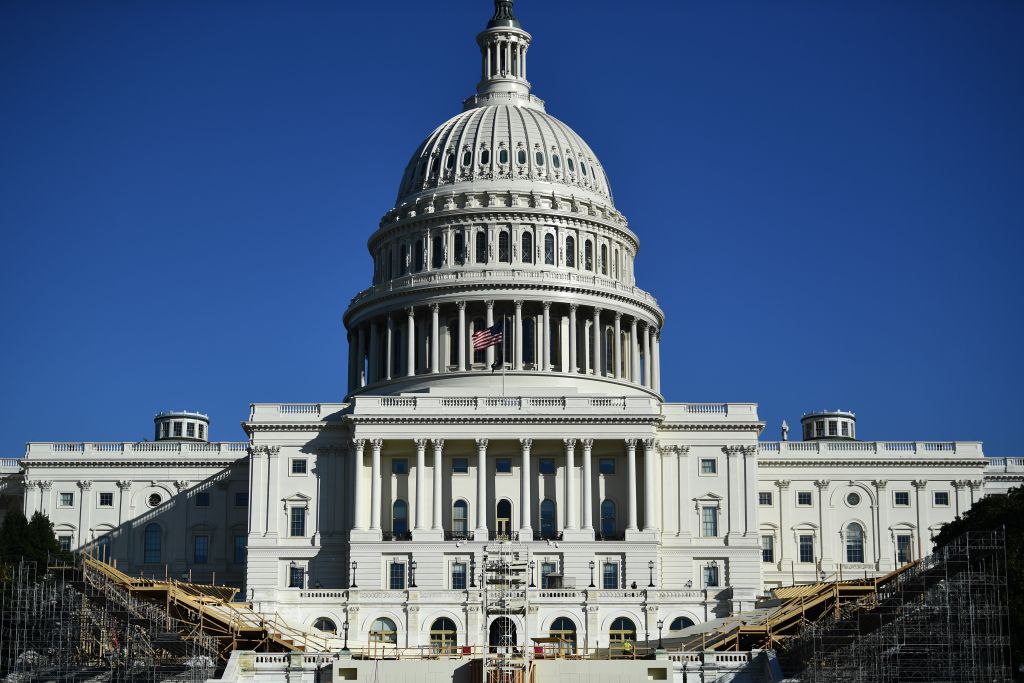Most congressional Republicans are still avoiding acknowledging a winner in the presidential election, survey finds


A free daily email with the biggest news stories of the day – and the best features from TheWeek.com
You are now subscribed
Your newsletter sign-up was successful
Only 27 out of 249 congressional Republicans have acknowledged President-elect Joe Biden's election victory, a Washington Post survey has found.
The results of the survey aren't surprising, given that only a handful of GOP lawmakers have explicitly referred to Biden as the president-elect, but it does provide the most comprehensive look at where the party's elected officials stand.
Post reporters contacted aides for every Republican in the House and Senate between Wednesday evening and Saturday, asking them who the lawmakers consider to have won the presidential election, if they support or oppose Trump's continuing efforts to overturn the results, and if they'll accept Biden as a legitimately elected president should he win a majority of the Electoral College vote, as expected.
The Week
Escape your echo chamber. Get the facts behind the news, plus analysis from multiple perspectives.

Sign up for The Week's Free Newsletters
From our morning news briefing to a weekly Good News Newsletter, get the best of The Week delivered directly to your inbox.
From our morning news briefing to a weekly Good News Newsletter, get the best of The Week delivered directly to your inbox.
The most common answer, by far, to all three questions was actually a non-answer. In fact, more than 70 percent of Republicans left the Post's questions unattended. But two Republicans said they consider Trump the winner of the election, eight said they support his legal challenges, and two said they wouldn't accept Biden as a legitimate president even if he wins the Electoral College vote.
The Senate, proportionally, was more willing to acknowledge Biden's win than the House — 12 of the 52 Republicans sitting in the upper chamber told the Post he won the election, compared to just 14 of the 197 in the lower chamber. Among those 14, six are retiring from politics at the end of the month, suggesting that many Republicans may be staying out of the fray to avoid jeopardizing their re-election chances going forward. Read more at The Washington Post.
A free daily email with the biggest news stories of the day – and the best features from TheWeek.com
Tim is a staff writer at The Week and has contributed to Bedford and Bowery and The New York Transatlantic. He is a graduate of Occidental College and NYU's journalism school. Tim enjoys writing about baseball, Europe, and extinct megafauna. He lives in New York City.
-
 5 blacked out cartoons about the Epstein file redactions
5 blacked out cartoons about the Epstein file redactionsCartoons Artists take on hidden identities, a censored presidential seal, and more
-
 How Democrats are turning DOJ lemons into partisan lemonade
How Democrats are turning DOJ lemons into partisan lemonadeTODAY’S BIG QUESTION As the Trump administration continues to try — and fail — at indicting its political enemies, Democratic lawmakers have begun seizing the moment for themselves
-
 ICE’s new targets post-Minnesota retreat
ICE’s new targets post-Minnesota retreatIn the Spotlight Several cities are reportedly on ICE’s list for immigration crackdowns
-
 Key Bangladesh election returns old guard to power
Key Bangladesh election returns old guard to powerSpeed Read The Bangladesh Nationalist Party claimed a decisive victory
-
 Epstein files topple law CEO, roil UK government
Epstein files topple law CEO, roil UK governmentSpeed Read Peter Mandelson, Britain’s former ambassador to the US, is caught up in the scandal
-
 Iran and US prepare to meet after skirmishes
Iran and US prepare to meet after skirmishesSpeed Read The incident comes amid heightened tensions in the Middle East
-
 EU and India clinch trade pact amid US tariff war
EU and India clinch trade pact amid US tariff warSpeed Read The agreement will slash tariffs on most goods over the next decade
-
 Israel retrieves final hostage’s body from Gaza
Israel retrieves final hostage’s body from GazaSpeed Read The 24-year-old police officer was killed during the initial Hamas attack
-
 China’s Xi targets top general in growing purge
China’s Xi targets top general in growing purgeSpeed Read Zhang Youxia is being investigated over ‘grave violations’ of the law
-
 Panama and Canada are negotiating over a crucial copper mine
Panama and Canada are negotiating over a crucial copper mineIn the Spotlight Panama is set to make a final decision on the mine this summer
-
 Why Greenland’s natural resources are nearly impossible to mine
Why Greenland’s natural resources are nearly impossible to mineThe Explainer The country’s natural landscape makes the task extremely difficult
